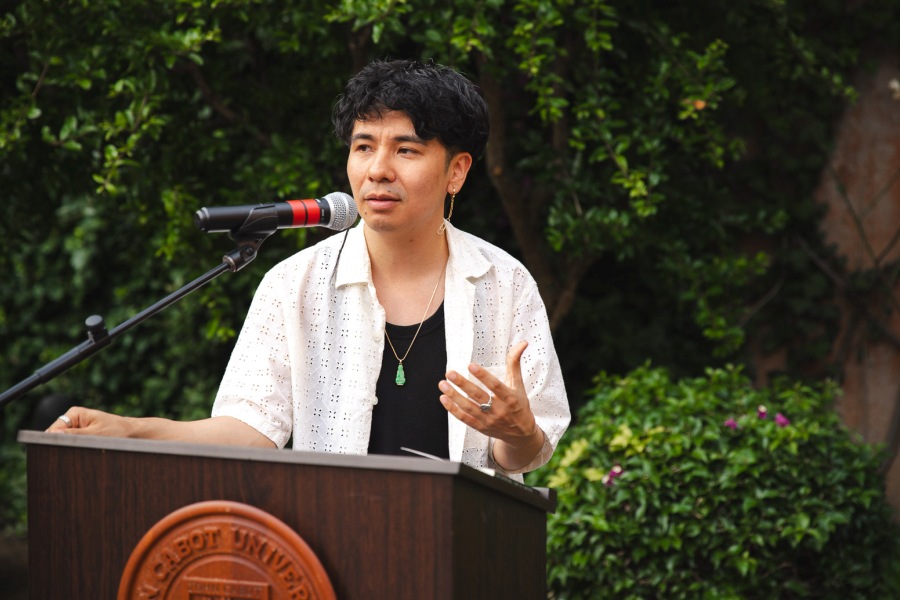Teaching and Learning Innovation: JCU Delegation Visits University of Cairo, Egypt
In February John Cabot sent a delegation from the Department of English Language and Literature to the American University of Cairo to attend and present at Talix: Teaching and Learning Innovation Exchange Conference. Sponsored by AMICAL (American International Consortium of Academic Libraries) as an inter-institutional professional development opportunity, the conference allowed members of the John Cabot faculty to develop initiatives for cross-institution collaboration and curriculum innovation.
Department Chair Shannon Russell, Adjunct Assistant Professor Alessandra Grego, Visiting Professor of Communications and Media Studies Deanna Lee, and Coordinator of John Cabot’s Writing Center Tara Keenan attended the conference to develop digital humanities programs at JCU as well as initiatives to support learning and teaching at the University.
Keenan gave a presentation to the conference focusing on student-directed writing development and how to ensure that students actually read and assimilate the comments on graded papers. Russell, Lee, and Grego collaborated with other AMICAL members on how to develop the English Language and Literature Department’s WROME (Writing Rome) Project, a digital humanities project that highlights the cultural networks of eighteenth and nineteenth-century foreign writers in Rome.
Was this your first time in Cairo? What was your impression of Cairo and Egypt?
Keenan: This was my first time in Cairo. Same with Prof. Grego and Prof. Russell. My personal impressions were that this is a place full of friendly, enthusiastic people interested in foreigners and what brings them to Cairo. I found that the staff, faculty, and students consistently challenged stereotypes about the role of women and what it means to be empowered. Nearly all of the decision-makers we met were self-assured, confident women. Though the American University of Cairo was a bit of a bubble in that regard, there was the sense that much of what one thinks one knows about a population is often either outdated or completely inaccurate. New Cairo really made a visual impression: miles upon miles of empty middle-class housing units punctuated by nearly empty Western-style shopping malls every mile or so. It was such a contrast to the city center, where space is at a premium.
Could you tell us a bit more about the WROME project and what it entails?
Russell: The WROME Project is a Digital Humanities project I dreamed up in relation to our core course Italian Visions: Perceptions of Italy in Literature and my membership in a Knowledge Transfer Network of British and Italian scholars who are interested in cultural exchanges between Italy and Britain in the Romantic period. Blending these two things, I thought it would be a good idea to develop a digital humanities project that would be a resource for students and scholars as well as a source of DH skills training. Modeled on projects like Stanford’s Mapping the Republic of Letters, the WROME Project is interested in revealing and mapping the eighteenth and nineteenth-century foreign writers who came to Rome. We want to consider what life was like for these writers, who they knew or met, what they did while here, what Rome was like for them, what they wrote, what they did when they returned home. I want to spotlight, once again, how key Rome is to any student studying literature in English.






